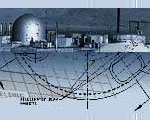|
|
Major Programs
- Fuel Cycle Research & Development

- Development and assessment of technologies for improved management of spent nuclear fuel. [more]
- NE Departments involved:
Engineering Analysis • Nuclear Systems Analysis • Engineering Development & Applications
- Generation IV (Gen IV) Nuclear Energy Program

- Development of next generation nuclear systems featuring significant advances in sustainability, economics, safety, reliability, proliferation resistance and physical protection. [more]
- FACT SHEET:
Generation IV (Gen IV) Program [74 KB]
NE Departments involved:
Engineering Analysis • Nuclear Systems Analysis • Engineering Development & Applications
- Advanced Reactor Concepts

- Provide enhanced operational performance, safety, security, economics, and proliferation resistance over currently deployed light water reactor technologies through national and international research and development collaborations.
- FACT SHEET:
Advanced Reactor Concepts Program [1.9MB]
NE Departments involved:
Engineering Analysis • Nuclear Systems Analysis • Engineering Development & Applications • Nonproliferation and National Security
- Nuclear Energy Advanced Modeling & Simulation

- Development of mechanistic, predictive modeling and simulation tools to advance our understanding and confidence in the performance, safety and economic benefits of next generation nuclear reactor and fuel designs. [more]
- NE Departments involved:
Engineering Analysis • Nuclear Systems Analysis
- Hydrogen Initiative

- Assessment and development of nuclear technologies for the generation of hydrogen as a replacement for fossil fuels. [more]
- NE Departments involved:
Engineering Analysis
- Reduced Enrichment for Research and Test Reactors (RERTR)
-

- Conversion of research reactors from high- to low-enriched uranium fuel to reduce risk of nuclear weapons proliferation. [RERTR website]
- FACT SHEET:
Research and Test Reactor [947KB]
NE Departments involved:
Nuclear Systems Analysis • Research & Test Reactor Conversion
RERTR-2012 International Meeting on Reduced Enrichment
for Research and Test Reactors
October 14-17, 2012, Warsaw, Poland
The U.S. Department of Energy / National Nuclear Security Administration’s Office of
Global Threat Reduction in cooperation with the International Atomic Energy Agency hosted
the “RERTR 2012 International Meeting on Reduced Enrichment for Research and Test Reactors.” The
meeting was organized by Argonne National Laboratory, Poland’s National Centre
for Nuclear Research (NCBJ) and Idaho National Laboratory and was held in Warsaw, Poland
from October 14-17, 2012. This was the 34th annual meeting in a series on the same general
subject regarding conversion of reactors within the Global Threat Reduction Initiative.
RERTR-2012
website.
- Nonproliferation and National Security
-

- Limiting risk of nuclear weapons proliferation through export control policy support, safeguarding of special nuclear materials in the Former Soviet Union, development of information management systems. [more]
- FACT SHEET:
Nonproliferation and National Security [166 KB]
NE Departments involved:
Nonproliferation and National Security
- Nuclear Regulatory Research
-

- Providing broad technical expertise in the relevant engineering technology areas and appropriate technical support to the NRC Office of Nuclear Regulatory Research.
- NE Departments involved:
Detection & Diagnostic Systems • Nuclear Systems Analysis
- International Programs
-

- Serving as an interface between the IAEA and the U.S. nuclear community, the International Programs play a lead role in many of the daily programmatic activities of the U.S.-IAEA relationship, including administering IAEA programs in the United States and encouraging Americans to consider IAEA employment. [more]
- SEE ALSO:
Engaging America’s experts: Argonne’s program to support the IAEA
The lab’s International Programs helps researchers from abroad and makes U.S. expertise available to the International Atomic Energy Agency. Article by Allison M. Holiski, published in the January 2013 issue of Nuclear News, Copyright © 2013 by the American Nuclear Society [739KB]
- Radiological Assistance Program
-

- Providing assistance in the event of a radiological accident or incident. [more]
- International Nuclear Safety
-

- Fostering open exchange of safety information and improvements of nuclear plant safety worldwide. [more]
- NE Departments involved:
Engineering Analysis
- Materials Disposition (MD)
-

- Safe disposition of excess weapons plutonium through reactor irradiation and conversion to spent fuel. [more]
- NE Departments involved:
Engineering Analysis • Nuclear Systems Analysis
- Decontamination and Decommissioning (D&D)
-

- Safe and cost-effective decommissioning of surplus, radioactively contaminated facilities (project identification, design, planning, budgeting, and project execution including disassembly, size reduction, waste packaging, demolition and decontamination). Knowledge gained through successful project completions is shared with others in the DOE complex and the nuclear community at large through topical presentations, training, and exchange of lessons learned. [more]
- FACT SHEET:
Decommissioning Program [135 KB]
NE Departments involved:
Engineering Development & Applications
Decommissioning Training Courses
A wealth of decommissioning know-how brought to you by seasoned professionals in the industry with a broad base of knowledge from practical decommissioning experience. Find out more about our "Facility Decommissioning" training courses now!
- Nuclear Criticality Safety

- Enhancing capability for assuring safe storage and transport for nuclear materials. [more]
- FACT SHEET:
Nuclear Criticality Safety [98 KB]
NE Departments involved:
Nuclear Systems Analysis
- Nuclear Data Program
-

- Processing and validation analysis, compilation, evaluation and measurements of nuclear data. [more]
- NE Departments involved:
Nuclear Systems Analysis
- Nuclear Waste Form Modeling
-

- Assuring safe performance of waste forms from processed EBR-II spent fuel in the Yucca Mountain Geologic Repository. [more]
- FACT SHEET:
Nuclear Waste Management [94 KB]
NE Departments involved:
Engineering Analysis
Last Modified: Fri, February 8, 2013






